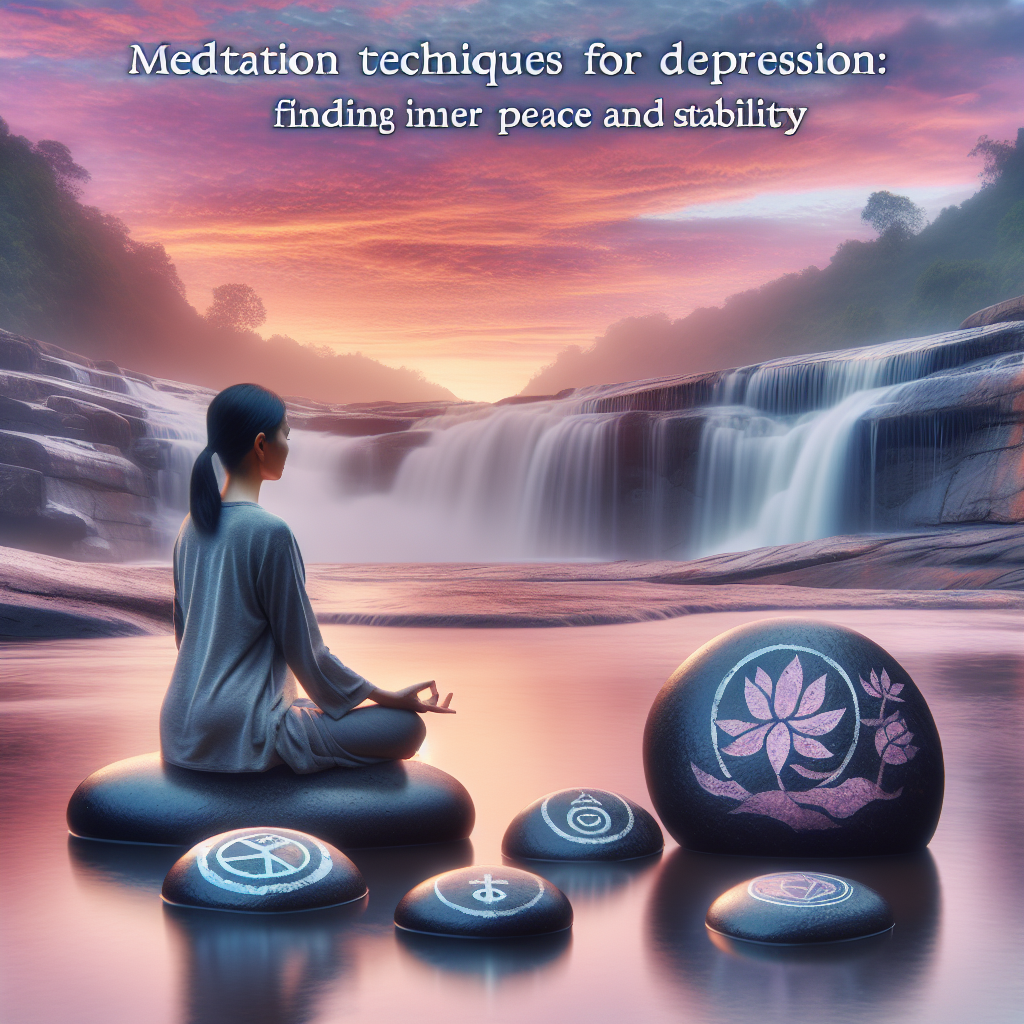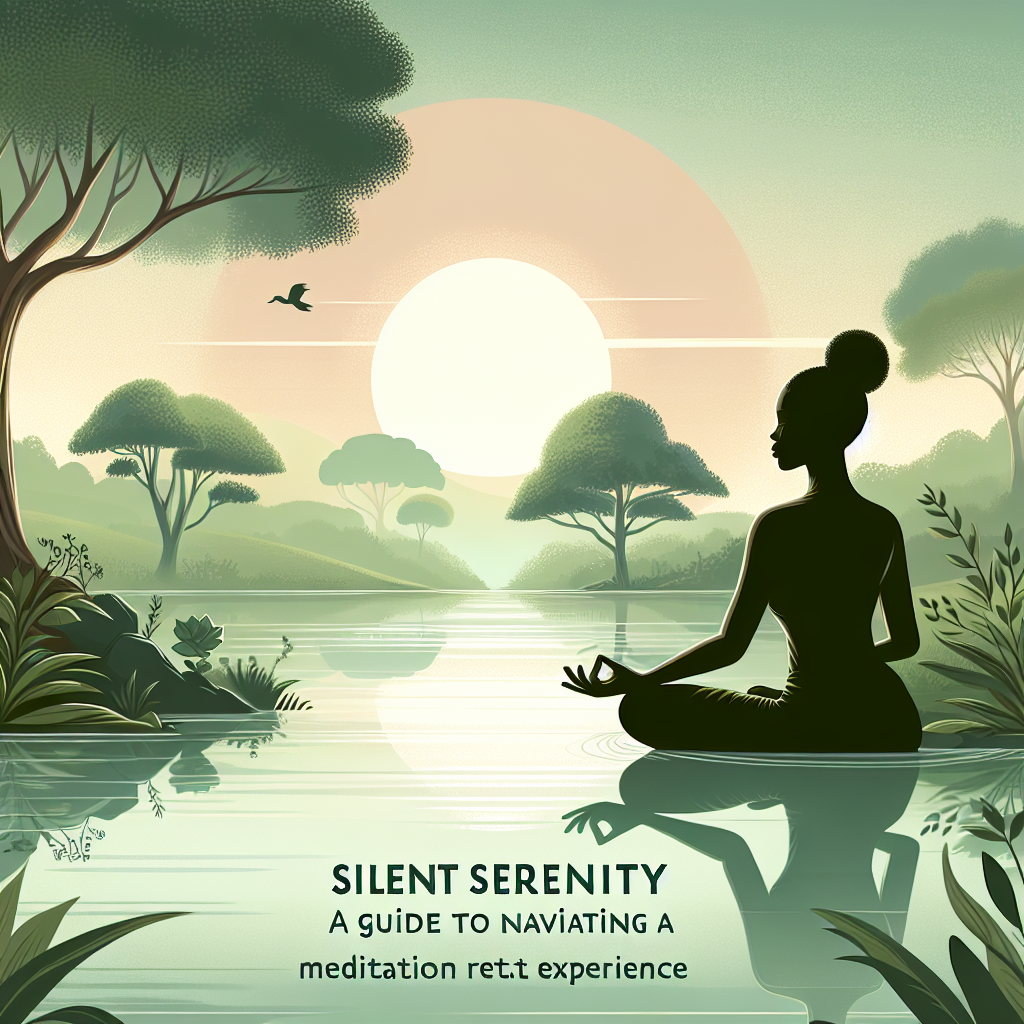meditation Techniques for Depression: Finding Inner Peace and Stability
Depression is a common mental health condition that affects millions of people worldwide. It can manifest in various ways, including feelings of sadness, hopelessness, and a lack of interest in activities that were once enjoyable. While medication and therapy are commonly prescribed treatments for depression, meditation has also been shown to be an effective tool in managing symptoms and promoting overall well-being.
Meditation is a practice that involves focusing the mind on a particular object, thought, or activity to achieve a state of mental clarity and emotional calm. By cultivating mindfulness and awareness, individuals can learn to observe their thoughts and feelings without judgment, allowing them to experience a greater sense of inner peace and stability.
There are many different meditation techniques that can be helpful for people struggling with depression. Here are some effective methods to consider:
1. Mindfulness Meditation: This technique involves focusing on the present moment and becoming aware of the thoughts, feelings, and sensations that arise without attaching judgment to them. By cultivating a nonjudgmental awareness of the present moment, individuals can learn to observe their thoughts and feelings without getting caught up in them, thus reducing rumination and increasing overall emotional well-being.
2. Loving-Kindness Meditation: Also known as Metta meditation, this practice involves cultivating feelings of love, compassion, and goodwill towards oneself and others. By repeating phrases such as “may I be happy, may I be healthy, may I be safe, may I live with ease,” individuals can increase their sense of self-compassion and cultivate a greater sense of connection with others, which can be particularly helpful for those struggling with feelings of isolation and loneliness.
3. Body Scan Meditation: This practice involves systematically focusing on different parts of the body, observing any sensations or tensions that arise, and cultivating a greater sense of relaxation and awareness. By bringing attention to the body and releasing tension through deep breathing and relaxation techniques, individuals can learn to connect with their physical sensations and increase their overall sense of well-being.
4. Breathing Meditation: This technique involves focusing on the breath as it moves in and out of the body, using the breath as an anchor for the mind and returning to it whenever the mind wanders. By focusing on the breath, individuals can cultivate a greater sense of presence and calm, reducing stress and anxiety and promoting relaxation and mental clarity.
5. Mantra Meditation: This practice involves repeating a particular word or phrase silently or aloud to focus the mind and cultivate a sense of inner peace and stability. By repeating a mantra such as “peace,” “love,” or “I am calm,” individuals can anchor their attention and create a sense of inner stillness and tranquility.
FAQs:
Q: How often should I meditate to experience the benefits for depression?
A: The frequency of meditation varies from person to person. Some individuals may benefit from meditating daily, while others may find that meditating a few times a week is sufficient. It’s important to listen to your body and mind and find a routine that works best for you.
Q: Can meditation replace medication for depression?
A: Meditation can be a helpful tool in managing symptoms of depression, but it is not a replacement for medication or therapy. It can be used in conjunction with other treatments to promote overall well-being and emotional stability.
Q: How long does it take to see results from meditation for depression?
A: The timeline for experiencing benefits from meditation varies from person to person. Some individuals may notice a difference in their mood and well-being after just a few sessions, while others may require more time to see significant changes. Consistency and practice are key to experiencing the full benefits of meditation.
Q: Can meditation worsen symptoms of depression?
A: While meditation is generally considered a safe practice, some individuals may find that it initially brings up uncomfortable emotions or feelings. It’s important to approach meditation with self-compassion and seek support from a mental health professional if needed.
In conclusion, meditation can be a powerful tool in managing symptoms of depression and promoting inner peace and stability. By exploring different meditation techniques and finding a practice that resonates with you, you can cultivate mindfulness, reduce stress and anxiety, and improve your overall emotional well-being. Remember to approach meditation with an open mind and heart, and seek support from a mental health professional if needed. With dedication and practice, you can find greater inner peace and stability in your life.




Leave A Comment